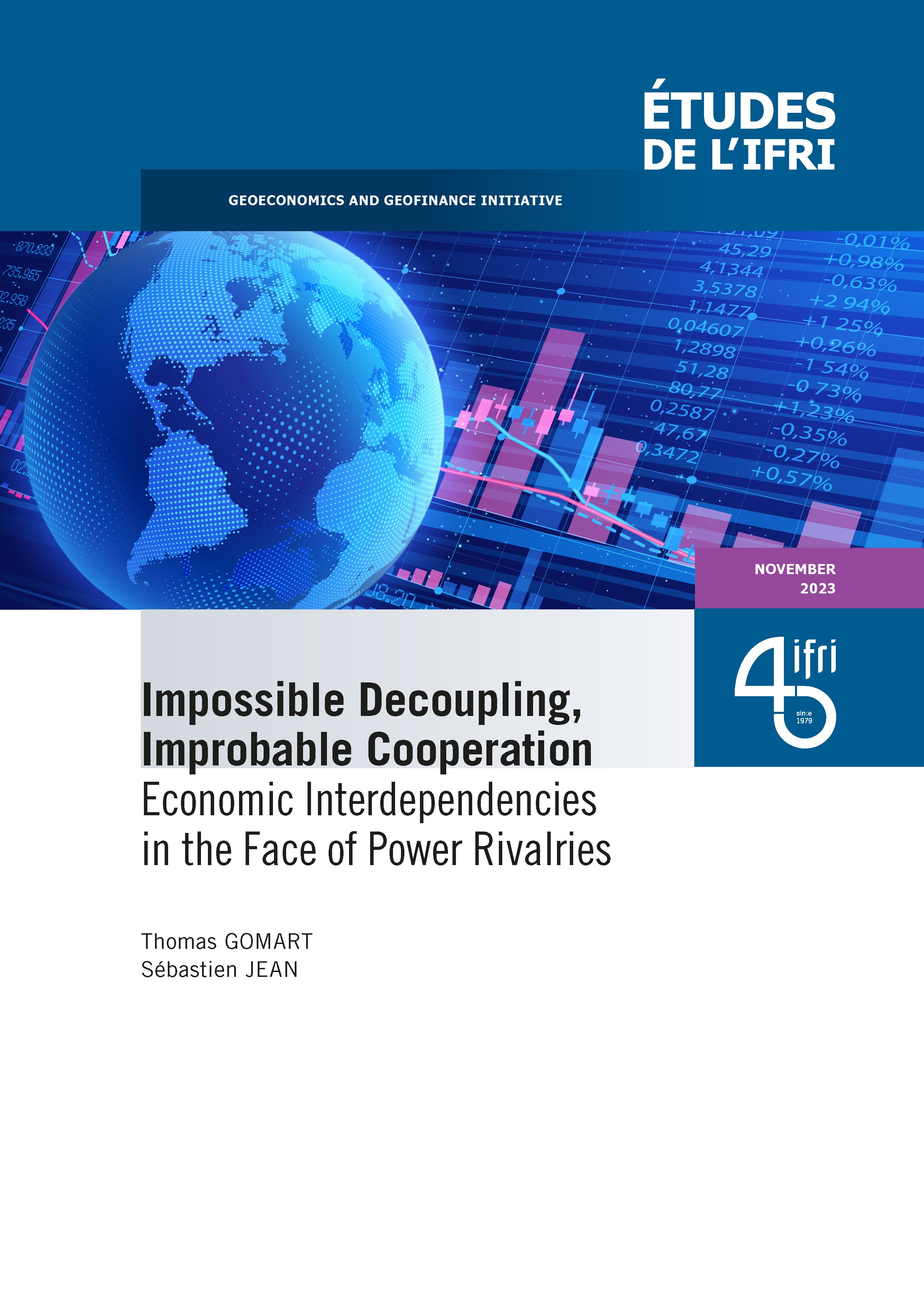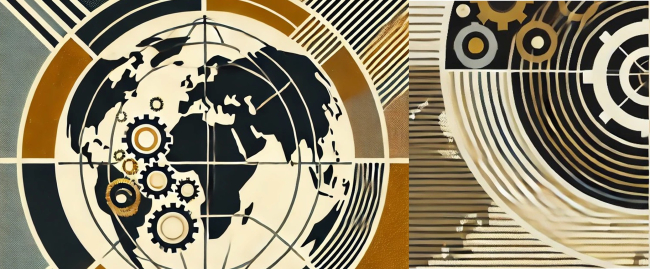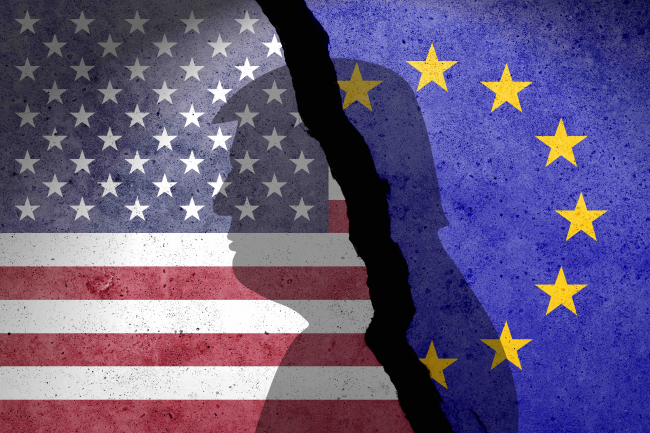Impossible Decoupling, Improbable Cooperation: Economic Interdependencies in the Face of Power Rivalries

Export restrictions, economic and financial sanctions, politicization of monetary and financial choices, screening of inward and outward foreign direct investments, exceptional customs duties, and state interventions in sectors deemed strategic: the political vise is tightening around international economic and financial relations.

This shift is the result of economic transformations as well as political and ideological ambitions. Economic and financial interdependencies remain very close, but they are increasingly constrained by power rivalries.
“Geoeconomics” remains, to the extent that economic logic still entails both mutually beneficial exchanges and often conflicting state interests. But it is becoming more complex, moving towards a logic that can be described as “geofinance”: the simultaneous politicization of financial and information flows shows that the objectives, tools, and support points of these interactions are profoundly transformed.
The increasing weaponization of interdependencies illustrates these trends: political rivalry motivates it, the challenge of climate change redefines the stakes, the intensity of interdependencies increases the potential consequences, growing complexity creates favorable backgrounds, the dematerialization of productive capital fuels non-cooperative state strategies and often makes interdependencies inextricable.
This upheaval gives a new security dimension to international economic policies. Economic security is becoming omnipresent in international relations, but the approaches and consequences of this common concern differ widely.
Thomas Gomart, Director of Ifri.
Sébastien Jean is professor of economics at Conservatoire National des Arts et Métiers (Paris), where he holds the chair Jean-Baptiste Say d’économie industrielle. He is also Associate Director with Ifri, where he is in charge of the “Geoeconomics and Geofinance” initiative.
This study is also available in French : "Découplage impossible, coopération improbable. Les interdépendances économiques à l’épreuve des rivalités de puissance".

Available in:
Regions and themes
ISBN / ISSN
Share
Download the full analysis
This page contains only a summary of our work. If you would like to have access to all the information from our research on the subject, you can download the full version in PDF format.
Impossible Decoupling, Improbable Cooperation: Economic Interdependencies in the Face of Power Rivalries
Related centers and programs
Discover our other research centers and programsFind out more
Discover all our analyses
New Cold War? What New Cold War? Confronting the Geoeconomic Fragmentation Narrative with the Data
It has become widely accepted that the world economy should be seen as increasingly shaped by forces of fragmentation, resulting from geopolitical tensions. This article takes another look at this narrative, using international trade data. While an aggregate analysis is consistent with a new Cold War narrative, whereby international trade is increasingly seen as split into two blocs, this is only a mix of very different outcomes. Far from being a widespread trend, geoeconomic fragmentation of trade flows is only significant in “hotspots”: Russia's foreign trade and China-US bilateral exchanges, and the impact is massive in these cases. Outside these “hotspots”, there is no tangible sign that geopolitical tensions have been shaping international trade patterns in terms of blocs, nor is there any hint of a trend toward nearshoring – to the contrary, in fact.
Central Securities Depositories and Geopolitical Risks: Challenges for European Policy
Central Securities Depositories (CSDs) form the backbone of financial market infrastructure by registering securities, settling trades, distributing cash flows, and managing collateral. While often regarded as mere financial “plumbing,” they in fact underpin strategic objectives such as advancing the Savings and Investment Union, curbing tax evasion, and reinforcing Europe’s geopolitical stance.
Manufacturing Risk: Geopolitical Doxa and the Corporate World
The evolving power dynamics between the United States, China, and Russia are creating new geopolitical realities that businesses can no longer evade. Geopolitical risk has become unavoidable, yet many companies remain unprepared to navigate its complexities. Corporate leaders can no longer afford to overlook its implications.
Trump's Trade War: What Answers for the European Union?
The announcement, on April 2, 2025, of “reciprocal tariffs” by the United States has opened a sequence of profound break with decades of established trade policy practices, where the administration behaviour has been marked by dogmatic blindness, amateurism, and self-serving interests.













